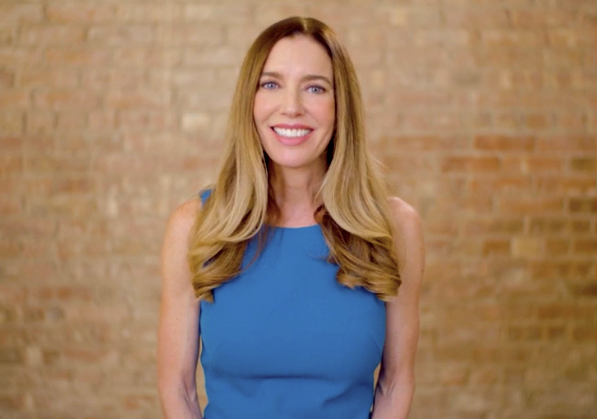Jennifer Barrett is the Chief Education Officer at Acorns, a financial wellness app with nearly 7 million users, and founding editor of its money site, Grow. Before Acorns, she held various management roles in media, including Personal Finance Editor at CNBC and Senior Vice President and Editor in Chief at DailyWorth, a financial media company targeting women. She also served as General Manager at Hearst Digital, overseeing four magazine sites: Cosmopolitan, Redbook, Good Housekeeping and Seventeen.
With more women becoming the breadwinner in the family, Jennifer recently wrote an article featured in Forbes titled “How Economic Fallout From The Coronavirus May Disproportionately Affect Women”
A longtime financial literacy advocate and award-winning journalist, Jennifer began her financial journalism career covering foreign exchange for The Wall Street Journal and spent seven years at Newsweek, where she was a staff writer and editor. The co-author of two personal finance books, she’s also written for several national publications including The New York Times, The Washington Post, Worth and Money. She’s currently working on a book about women and breadwinning. Follow her on Twitter @JBarrettNYC.
Here are the highlights from this interview:
- Jennifer moved into the main breadwinner role about 10 years ago when she had her second son
- Whether you are in the main breadwinner role or not, there are still challenges for working moms
- There is still this assumption that women should be picking up most of the caregiving and household responsibilities
- This current quarantine is challenging that assumption but it’s still prevalent
- Even with a partner who takes on a caregiver role, there is still an added layer of mom guilt because you are not playing the “typical” mom role
- Mom guilt doesn’t just come from being a working mom; it can also come from the assumption that you are not being a good mom if you are the main breadwinner and your partner does more caregiving than you
- She discusses her light bulb moment regarding this added layer of mom guilt when it came to going to a parent teacher conference
- It made her question what makes a good mom and began to shift her perspective
- The idea that we have about the definition of a “good mom” needs to be looked at
- She discusses the role her own mom played in her wanting a career
- When we have a particular picture in our minds of what a mom should be, and we don’t fit that picture ourselves, it can be very uncomfortable
- When her mom became the sole breadwinner after her parents divorced, her mom went back to school and got her MBA
- Jennifer had a wake up call that if she and her husband wanted to have the life they wanted in NYC, that she needed to take her career further
- She realized that she perceived independence as being able to take care of herself in the moment, not about having wealth and being able to take care of herself and her family forever
- If she wanted to own a home, have another child and stop living paycheck to paycheck, she needed to be engaged more with her finances and be more proactive herself instead of waiting for her husband to pick up the slack
- She realized that the perception of men being the sole or primary breadwinner wasn’t the norm anymore
- After the recession in 2008, many women were becoming accidental main breadwinners because so many more men lost their jobs
- In a 2012 survey, in 42% of households with children under the age of 18, the mom was the main breadwinner
- She realized her situation wasn’t unique
- During this pandemic, with accountants being considered essential workers, we need to have more conversations about needing help at home
- Women represent 52% of essential workers so for the first time, women are the majority of workers, shifting the breadwinner model
- This current situation will chip away at the gender norms, that women are the caregivers and men are the breadwinners
- As working moms we need to take a look at how we define “engagement” with our children and not feel that we need to be perfect
- We have to discover what the right balance is for us and for our families
- Choosing what you enjoy doing and what’s meaningful to you, and then dividing up the remaining things that need to be done
- We need to revisit and rewrite the rules
- Research now shows that children who have working moms benefit more cognitively
- This current pandemic is thankfully shifting the gender roles and will hopefully be something that continues after life gets back to a “new normal”
- Jennifer Barret can be found on Linkedin, her Twitter feed is @jbarrettnyc where she shares how “imperfect” a parent she is
- Her book “The Joy of Breadwinning” will be coming out next Spring

